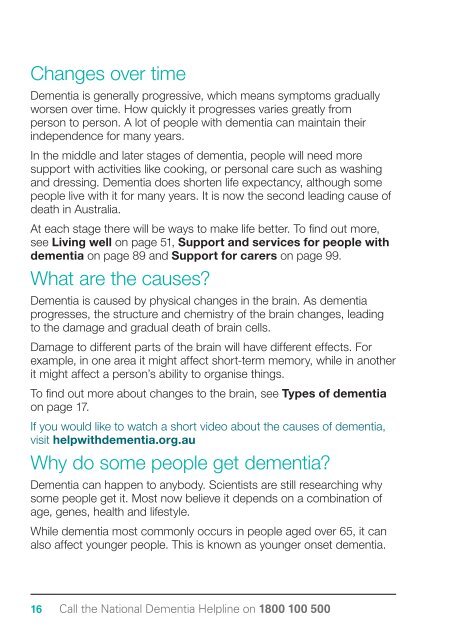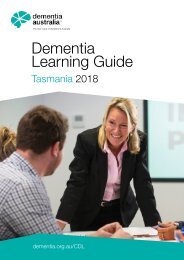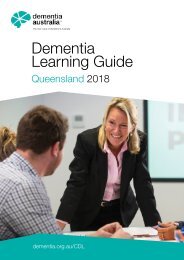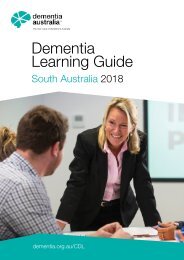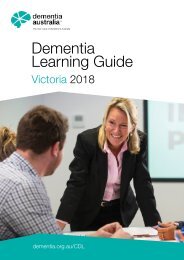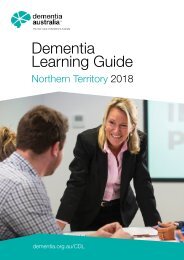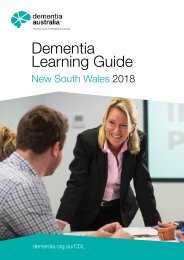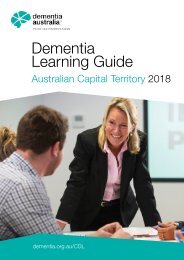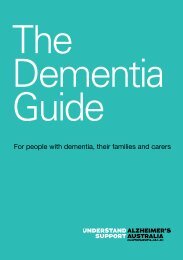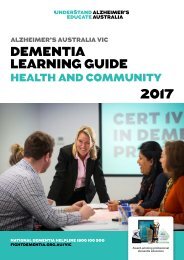Dementia Australia | The Dementia Guide
The Guide will also be used by the family and friends of someone with dementia, as it will contain information for anyone taking on a caring role. It will help people to understand more about dementia and the emotional impact of a diagnosis, the available drug treatments, and support and services that are available. It will include information about living well with dementia and about making plans for the future.
The Guide will also be used by the family and friends of someone with dementia, as it will contain information for anyone taking on a caring role. It will help people to understand more about dementia and the emotional impact of a diagnosis, the available drug treatments, and support and services that are available. It will include information about living well with dementia and about making plans for the future.
You also want an ePaper? Increase the reach of your titles
YUMPU automatically turns print PDFs into web optimized ePapers that Google loves.
Changes over time<br />
<strong>Dementia</strong> is generally progressive, which means symptoms gradually<br />
worsen over time. How quickly it progresses varies greatly from<br />
person to person. A lot of people with dementia can maintain their<br />
independence for many years.<br />
In the middle and later stages of dementia, people will need more<br />
support with activities like cooking, or personal care such as washing<br />
and dressing. <strong>Dementia</strong> does shorten life expectancy, although some<br />
people live with it for many years. It is now the second leading cause of<br />
death in <strong>Australia</strong>.<br />
At each stage there will be ways to make life better. To find out more,<br />
see Living well on page 51, Support and services for people with<br />
dementia on page 89 and Support for carers on page 99.<br />
What are the causes?<br />
<strong>Dementia</strong> is caused by physical changes in the brain. As dementia<br />
progresses, the structure and chemistry of the brain changes, leading<br />
to the damage and gradual death of brain cells.<br />
Damage to different parts of the brain will have different effects. For<br />
example, in one area it might affect short-term memory, while in another<br />
it might affect a person’s ability to organise things.<br />
To find out more about changes to the brain, see Types of dementia<br />
on page 17.<br />
If you would like to watch a short video about the causes of dementia,<br />
visit helpwithdementia.org.au<br />
Why do some people get dementia?<br />
<strong>Dementia</strong> can happen to anybody. Scientists are still researching why<br />
some people get it. Most now believe it depends on a combination of<br />
age, genes, health and lifestyle.<br />
While dementia most commonly occurs in people aged over 65, it can<br />
also affect younger people. This is known as younger onset dementia.<br />
16 Call the National <strong>Dementia</strong> Helpline on 1800 100 500


